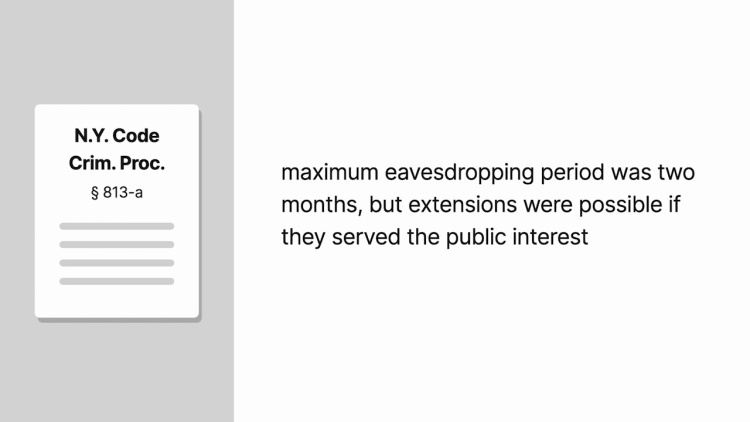Berger v. New York
United States Supreme Court
388 U.S. 41 (1967)

- Written by Eric Cervone, LLM
Facts
A New York state law authorized judges to grant warrants for eavesdropping via wiretap if there was reasonable ground to believe that the eavesdropping would uncover evidence of a crime. The state law required an oath of a district attorney, attorney general, or high-ranking police officer that such reasonable grounds existed for the eavesdropping. The oath was required to state at whom the eavesdropping was directed, the telephone number involved, and the duration of the eavesdropping, which could not be longer than two months. The State of New York (plaintiff) brought a claim against Ralph Berger (defendant) for bribery after wiretapping a conversation between Berger and a third party. Berger challenged the constitutionality of the statute, arguing that it violated the Fourth Amendment. The trial court held the statute was valid and the appellate court affirmed. The United States Supreme Court granted certiorari.
Rule of Law
Issue
Holding and Reasoning (Clark, J.)
What to do next…
Here's why 907,000 law students have relied on our case briefs:
- Written by law professors and practitioners, not other law students. 47,100 briefs, keyed to 996 casebooks. Top-notch customer support.
- The right amount of information, includes the facts, issues, rule of law, holding and reasoning, and any concurrences and dissents.
- Access in your classes, works on your mobile and tablet. Massive library of related video lessons and high quality multiple-choice questions.
- Easy to use, uniform format for every case brief. Written in plain English, not in legalese. Our briefs summarize and simplify; they don’t just repeat the court’s language.





